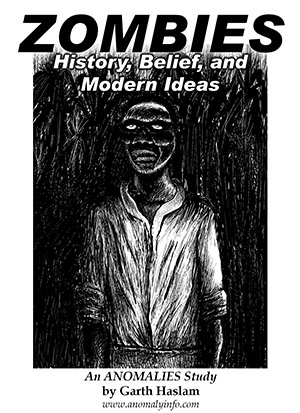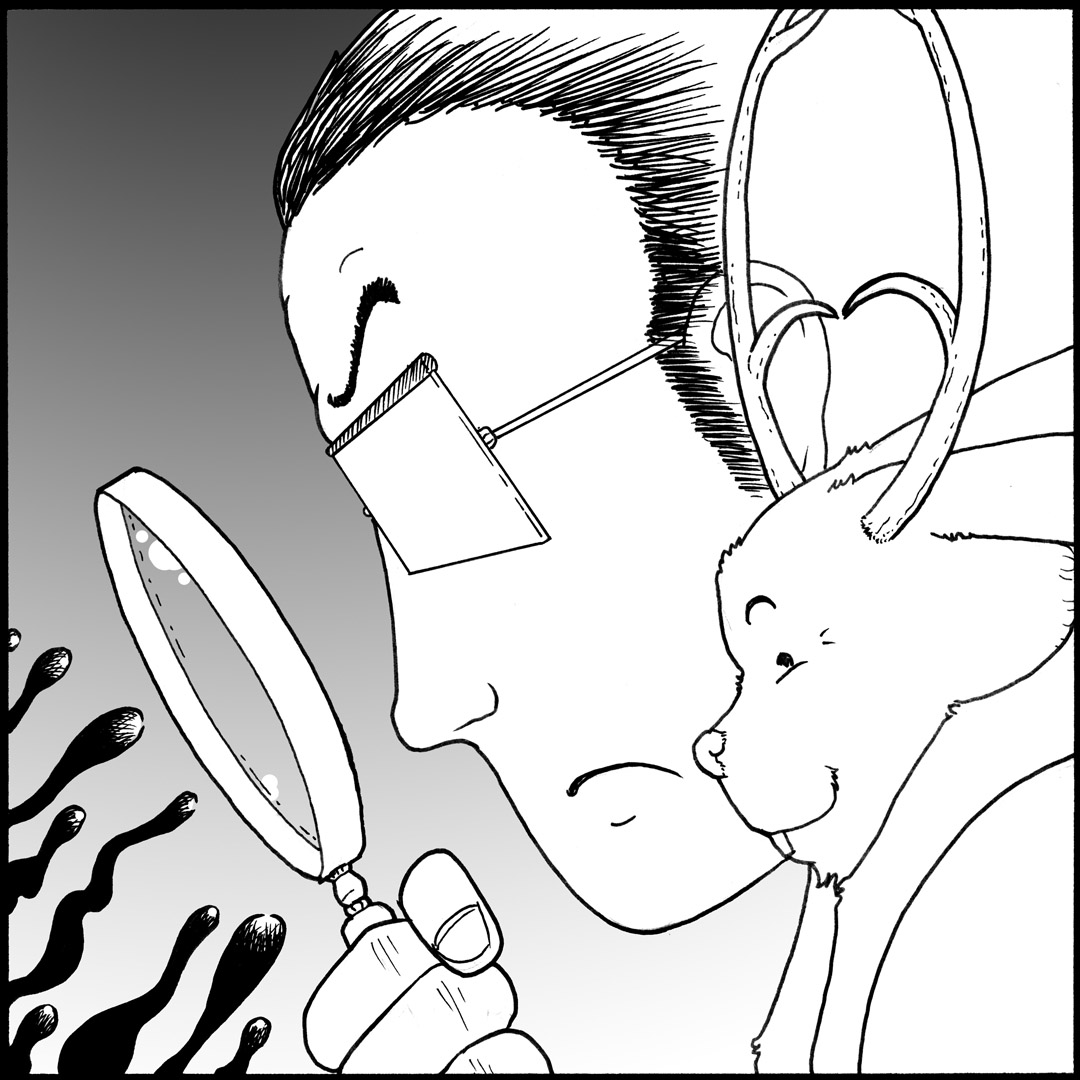1867 (pub): The Water King and Vasilissa the Wise
The following Russian folk-tale was first presented in English by William Ralston Shedden Ralston in 1880:
Once upon a time there lived a King and Queen, and the King was very fond of hunting and shooting. Well one day he went out hunting, and he saw an Eaglet sitting on an oak. But just as he was going to shoot at it the Eaglet began to entreat him, crying:—
"Don't shoot me, my lord King! better take me home with you; some time or other I shall be of service to you."
The King reflected awhile and said, "How can you be of use to me?" and again he was going to shoot.
Then the Eaglet said to him a second time :—.
"Don't shoot me, my lord King! better take me home with you; some time or other I shall be of use to you."
The King thought and thought, but couldn't imagine a bit the more what use the Eaglet could be to him, and so he determined to shoot it. Then a third time the Eaglet exclaimed:—
"Don't shoot me, my lord King! better take me home with you and feed me for three years. Some time or other I shall be of service to you!"
The King relented, took the Eaglet home with him, and fed it for a year, for two years. But it ate so much that it devoured all his cattle. The King had neither a cow nor a sheep left. At length the Eagle said:—
"Now let me go free!"
The King set it at liberty; the Eagle began trying its wings. But no, it could not fly yet! So it said :—
"Well, my lord King! you have fed me two years; now, whether you like it or no, feed me for one year more. Even if you have to borrow, at all events feed me; you won't lose by it!"
Well, this is what the King did. He borrowed cattle from everywhere round about, and he fed the Eagle for the space of a whole year, and afterwards he set it at liberty. The Eagle rose ever so high, flew and flew, then dropt down again to the earth and said:—
"Now then, my lord King! Take a seat on my back! we'll have a fly together?"
The King got on the Eagle's back. Away they went flying. Before very long they reached the blue sea. Then the Eagle shook off the King, who fell into the sea, and sank up to his knees. But the Eagle didn't let him drown! it jerked him on to its wing, and asked :—
"How now, my lord King! were you frightened, perchance?"
"I was," said the King; " I thought I was going to be drowned outright!"
Again they flew and flew till they reached another sea. The Eagle shook off the King right in the middle of the sea: the King sank up to his girdle. The Eagle jerked him on to its wing again, and asked :—
"Well, my lord King, were you frightened, perchance?"
"I was," he replied, "but all the time I thought, 'Perhaps, please God, the creature will pull me out.'"
Away they flew again, flew, and arrived at a third sea. The Eagle dropped the King into a great gulf, so that he sank right up to his neck. And the third time the Eagle jerked him on to its wing, and asked:—
"Well, my lord King! Were you frightened, perchance?"
"I was," says the King, "but still I said to myself, 'Perhaps it will pull me out.'"
"Well, my lord King! now you have felt what the fear of death is like! What I have done was in payment of an old score. Do you remember my sitting on an oak, and your wanting to shoot me? Three times you were going to let fly, but I kept on entreating you not to shoot, saying to myself all the time, 'Perhaps he won't kill me; perhaps he'll relent and take me home with him!'"
Afterwards they flew beyond thrice nine lands: long, long did they fly. Says the Eagle, "Look, my lord King! what is above us and what below us?"
The King looked.
"Above us," he says, is the sky, below us the earth."
"Look again; what is on the right hand and on the left?"
"On the right hand is an open plain, on the left stands a house."
"We will fly thither," said the Eagle; "my youngest sister lives there."
They went straight into the courtyard. The sister came out to meet them, received her brother cordially, and seated him at the oaken table. But on the King she would not so much as look, but left him outside, loosed greyhounds, and set them at him. The Eagle was exceedingly wroth, jumped up from table, seized the King, and flew away with him again.
Well, they flew and flew. Presently the Eagle said to the King, "Look round; what is behind us?"
The King turned his head, looked, and said, "Behind us is a red house."
"That is the house of my youngest sister — on fire, because she did not receive you, but set greyhounds at you!" They flew and flew. Again the Eagle asked: "Look again, my lord King; what is above us, and what below us?"
"Above us is the sky, below us the earth."
"Look and see what is on the right hand and on the left."
"On the right is the open plain, on the left there stands a house."
"There lives my second sister; we'll go and pay her a visit."
They stopped in a wide courtyard. The second sister received her brother cordially, and seated him at the oaken table; but the King was left outside, and she loosed greyhounds, and set them at him. The Eagle flew into a rage, jumped up from table, caught up the King, and flew away farther with him. They flew and flew. Says the Eagle:
"My lord King! look round! what is behind us?"
The King looked back.
"There stands behind us a red house."
"That's my second sister's house burning!" said the Eagle. "Now we'll fly to where my mother and my eldest sister live."
Well, they flew there. The Eagle's mother and eldest sister were delighted to see them, and received the King with cordiality and respect.
"Now, my lord King," said the Eagle, "tarry awhile with us, and afterwards I will give you a ship, and will repay you for all I ate in your house, and then—God speed you home again!"
So the Eagle gave the King a ship and two coffers—the one red, the other green—and said:
"Mind now! don't open the coffers until you get home. Then open the red coffer in the back court, and the green coffer in the front court."
The King took the coffers, parted with the Eagle, and sailed along the blue sea. Presently he came to a certain island, and there his ship stopped. He landed on the shore, and began thinking about the coffers, and wondering whatever there could be in them, and why the Eagle had told him not to open them. He thought and thought, and at last couldn't hold out any more — he longed so awfully to know all about it. So he took the red coffer, set it on the ground, and opened it — and out of it came such a quantity of different kinds of cattle that there was no counting them; the island had barely room enough for them.
When the King saw that, he became exceedingly sorrowful, and began to weep and therewithal to say:
"What is there now left for me to do? how shall I get all this cattle back into so little a coffer?"
Lo! there came out of the water a man — came up to him, and asked:
"Wherefore are you weeping so bitterly, O lord King?"
"How can I help weeping!" answers the King. "How shall I be able to get all this great herd into so small a coffer?"
"If you like, I will set your mind at rest. I will pack up all your cattle for you. But on one condition only. You must give me whatever you have at home that you don't know of."
The King reflected.
"Whatever is there at home that I don't know of?" says he. "I fancy I know about everything that's there."
He reflected, and consented. "Pack them up," says he. "I will give you whatever I have at home that I know nothing about."
So that man packed away all his cattle for him in the coffer. The King went on board ship and sailed away homewards.
When he reached home, then only did he learn that a son had been born to him. And he began kissing the child, caressing it, and at the same time bursting into such floods of tears!
"My lord King!" says the Queen, "tell me wherefore thou droppest bitter tears?"
"For joy!" he replies.
He was afraid to tell her the truth, that the Prince would have to be given up. Afterwards he went into the back court, opened the red coffer, and thence issued oxen and cows, sheep and rams; there were multitudes of all sorts of cattle, so that all the sheds and pastures were crammed full. He went into the front court, opened the green coffer, and there appeared a great and glorious garden. What trees there were in it to be sure! The King was so delighted that he forgot all about giving up his son.
Many years went by. One day the King took it into his head to go for a stroll, and he came to a river. At that moment the same man he had seen before came out of the water, and said:
"You've pretty soon become forgetful, lord King! Think a little! surely you're in my debt!"
The King returned home full of grief, and told all the truth to the Queen and the Prince. They all mourned and wept together, but they decided that there was no help for it, the Prince must be given up. So they took him to the mouth of the river and there they left him alone.
The Prince looked around, saw a footpath, and followed it, trusting God would lead him somewhere. He walked and walked, and came to a dense forest: in the forest stood a hut, in the hut lived a Baba Yaga.
"Suppose I go in," thought the Prince, and went in.
"Good day, Prince!" said the Baba Yaga. "Are you seeking work or shunning work?"
"Eh, granny! First give me to eat and to drink, and then ask me questions."
So she gave him food and drink, and the Prince told her everything as to whither he was going and with what purpose.
Then the Baba Yaga said: "Go, my child, to the sea-shore: there will fly thither twelve spoonbills, which will turn into fair maidens, and begin bathing; do you steal quietly up and lay your hands on the eldest maiden's shift. When you have come to terms with her, go to the Water King, and there will meet you on the way Obédalo and Opivalo, and also Moroz Treskum* — take all of them with you; they will do you good service." [* Three of the well-known servants of Fortunatus. The eater-up (ob'egedat' = to devour). The drinker-up (pit' = to drink, opivat'sya, to drink oneself to death), and "Crackling Frost."]
The Prince bid the Yaga farewell, went to the appointed spot on the sea-shore, and hid behind the bushes. Presently twelve spoonbills came flying thither, struck the moist earth, turned into fair maidens, and began to bathe. The Prince stole the eldest one's shift, and sat down behind a bush — didn't budge an inch. The girls finished bathing and came out on the shore: eleven of them put on their shifts, turned into birds, and flew away home. There remained only the eldest, Vasilissa the Wise. She began praying and begging the good youth:
"Do give me my shift!" she says. "You are on your way to the house of my father, the Water King. When you come I will do you good service."
So the Prince gave her back her shift, and she immediately turned into a spoonbill and flew away after her companions. The Prince went further on; there met him by the way three heroes—Obédalo, Opivalo, and Moroz Treskum; he took them with him and went on to the Water King's.
The Water King saw him, and said:
"Hail, friend! why have you been so long in coming to me? I have grown weary of waiting for you. Now set to work. Here is your first task. Build me in one night a great crystal bridge, so that it shall be ready for use to-morrow. If you don't build it — off goes your head!"
The Prince went away from the Water King, and burst into a flood of tears. Vasilissa the Wise opened the window of her upper chamber, and asked:
"What are you crying about, Prince?"
"Ah! Vasilissa the Wise! how can I help crying? Your father has ordered me to build a crystal bridge in a single night, and I don't even know how to handle an axe."
"No matter! lie down and sleep; the morning is wiser than the evening."
She ordered him to sleep, but she herself went out on the steps, and called aloud with a mighty whistling cry. Then from all sides there ran together carpenters and workmen; one levelled the ground, another carried bricks. Soon had they built a crystal bridge, and traced cunning devices on it; and then they dispersed to their homes.
Early next morning Vasilissa the Wise awoke the Prince:
"Get up, Prince! the bridge is ready: my father will be coming to inspect it directly."
Up jumped the Prince, seized a broom, took his place on the bridge, and began sweeping here, clearing up there.
The Water King bestowed praise upon him:
"Thanks!" says he. "You've done me one service: now do another. Here is your task. Plant me by to-morrow a garden green — a big and shady one; and there must be birds singing in the garden, and flowers blossoming on the trees, and ripe apples and pears hanging from the boughs."
Away went the Prince from the Water King, all dissolved in tears. Vasilissa the Wise opened her window and asked:
"What are you crying for, Prince?"
"How can I help crying? Your father has ordered me to plant a garden in one night!"
"That's nothing! lie down and sleep: the morning is wiser than the evening."
She made him go to sleep, but she herself went out on the steps, called and whistled with a mighty whistle. From every side there ran together gardeners of all sorts, and they planted a garden green, and in the garden birds sang, on the trees flowers blossomed, from the boughs hung ripe apples and pears,
Early in the morning Vasilissa the Wise awoke the Prince:
"Get up, Prince! the garden is ready: Papa is coming to see it."
The Prince immediateiy snatched up a broom, and was off to the garden. Here he swept a path, there he trained a twig. The Water King praised him and said.
"Thanks, Prince! You've done me right trusty service. So choose yourself a bride from among my twelve daughters. They are all exactly alike in face, in hair, and in dress. If you can pick out the same one three times running, she shall be your wife; if you fail to do so, I shall have you put to death."
Vasilissa the Wise knew all about that, so she found time to say to the Prince:
"The first time I will wave my handkerchief, the second I will be arranging my dress, the third time you will see a fly above my head."
And so the Prince guessed which was Vasilissa the Wise three times running. And he and she were married, and a wedding feast was got ready.
Now the Water King had prepared much food of all sorts more than a hundred men could get through. And he ordered his son-in-law to see that everything was eaten. "If anything remains over, the worse for you!" says he.
"My Father," begs the Prince, "there's an old fellow of mine here; please let him take a snack with us."
"Let him come!"
Immediately appeared Obédalo — ate up everything, and wasn't content then! The Water King next set out two score tubs of all kinds of strong drinks, and ordered his son-in-law to see that they were all drained dry.
"My Father!" begs the Prince again, "there's another old man of mine here, let him, too, drink your health."
"Let him come!"
Opivalo appeared, emptied all the forty tubs in a twinkling, and then asked for a drop more by way of stirrup-cup. [* Opokhmyelit'sya, which may be rendered, "in order to drink off the effects of the debauch."]
The Water King saw that there was nothing to be gained that way, so he gave orders to prepare a bath-room for the young couple — an iron bath-room — and to heat it as hot as possible. So the iron bath-room was made hot. Twelve loads of firewood were set alight, and the stove and the walls were made red-hot — impossible to come within five versts of it.
"My Father!" says the Prince; "let an old fellow of ours have a scrub first, just to try the bath-room."
"Let him do so!"
Moroz Treskum went into the bath room, blew into one corner, blew in another — in a moment icicles were hanging there. After him the young couple also went into the bath-room, were lathered and scrubbed*, and then went home. [* The Russian bath somewhat resembles the Turkish. The word here translated "to scrub," properly means to rub and flog with the soft twig used in the baths for that purpose. At the end of the ceremonies attended on a Russian peasant wedding, the young couple always go to the bath.]
After a time Vasilissa said to the Prince, "Let us get out of my father's power. He's tremendously angry with you; perhaps he'll be doing you some hurt."
"Let us go," says the Prince.
Straightway they saddled their horses and galloped off into the open plain. They rode and rode; many an hour went by.
"Jump down from your horse, Prince, and lay your ear close to the earth," said Vasilissa. "Cannot you hear a sound as of pursuers?"
The prince bent his ear to the ground, but he could hear nothing. Then Vasilissa herself lighted down from her good steed, laid herself flat on the earth, and said: "Ah Prince! I hear a great noise as of chasing after us." Then she turned the horses into a well, and herself into a bowl, and the Prince into an old, very old man. Up came the pursuers.
"Heigh, old man!" say they, "haven't you seen a youth and a maiden pass by?"
"I saw them, my friends! only it was a long while ago. I was a youngster at the time when they rode by."
The pursuers returned to the Water King.
"There is no trace of them," they said, "no news: all we saw was an old man beside a well, and a bowl floating on the water."
"Why did not ye seize them?" cried the Water King, who thereupon put the pursuers to a cruel death, and sent another troop after the Prince and Vasilissa the Wise.
The fugitives in the mean time had ridden far, far away. Vasilissa the Wise heard the noise made by the fresh set of pursuers, so she turned the Prince into an old priest, and she herself became an ancient church. Scarcely did its walls hold together, covered all over with moss. Presently up came the pursuers.
"Heigh, old man! haven't you seen a youth and a maiden pass by?"
"I saw them, my own! only it was long, ever so long ago. I was a young man when they rode by. It was just while I was building this church."
So the second set of pursuers returned to the Water King, saying:
"There is neither trace nor news of them, your Royal Majesty. All that we saw was an old priest and an ancient church.
"Why did not ye seize them?" cried the Water King louder than before, and having put the pursuers to a cruel death, he galloped off himself in pursuit of the Prince and Vasilissa the Wise. This time Vasilissa turned the horses into a river of honey with kissel* banks, and changed the Prince into a Drake and herself into a grey duck. The Water King flung himself on the kissel and honey-water, and ate and ate, and drank and drank until he burst! And so he gave up the ghost. [* A sort of pudding or jelly.]
The Prince and Vasilissa rode on, and at length they drew nigh to the home of the Prince's parents. Then said Vasilissa, "Go on in front, Prince, and report your arrival to your father and mother. But I will wait for you here by the wayside. Only remember these words of mine: kiss everyone else, only don't kiss your sister; if you do, you will forget me."
The Prince reached home, began saluting every one, kissed his sister too — and no sooner had he kissed her than from that very moment he forgot all about his wife, just as if she had never entered into his mind.
Three days did Vasilissa the Wise await him. On the fourth day she clad herself like a beggar, went into the capital, and took up her quarters in an old woman's house. But the Prince was preparing to marry a rich Princess, and orders were given to proclaim throughout the kingdom, that all Christian people were to come to congratulate the bride and bridegroom, each one bringing a wheaten pie as a present. Well, the old woman with whom Vasilissa lodged, prepared, like everyone else, to sift flour and make a pie.
"Why are you making a pie, granny?" asked Vasilissa. "Is it why? you evidently don't know then. Our King is giving his son in marriage to a rich princess: one must go to the palace to serve up the dinner to the young couple."
"Come now! I, too, will bake a pie and take it to the palace; may be the King will make me some present."
"Bake away in God's name!" said the old woman.
Vasilissa took flour, kneaded dough, and made a pie. And inside it she put some curds and a pair of live doves.
Well, the old woman and Vasilissa the Wise reached the palace just at dinner-time. There a feast was in progress, one fit for all the world to see. Vasilissa's pie was set on the table, but no sooner was it cut in two than out of it flew the two doves. The hen bird seized a piece of curd, and her mate said to her:
"Give me some curds, too, Dovey!'
"No I won't," replied the other dove: "else you'd forget me, as the Prince has forgotten his Vasilissa the Wise."
Then the Prince remembered about his wife. He jumped up from table, caught her by her white hands, and seated her close by his side. From that time forward they lived together in all happiness and prosperity.
This tale was translated from the Russian folk and fairy tales collection of Alexander Afanasyev, published in eight volumes from 1855-1867. This is from volume v, and is tale no. 23. It's an interesting one, because it shows Baba-Yaga as a helpful character in this case, which shows that the name "Baba-Yaga" is not always used to designate a particular character -- the evil witch -- but sometimes is just used to generally indicate a wise woman, or an old woman who knows magic.
Anomalies -- the Strange & Unexplained, as well as my other website -- Monsters Here & There -- are supported by patrons, people like you! All new Anomalies articles are now posted for my patrons only, along with exclusive content made just for them. You can become a patron for just $1 a month!
|








